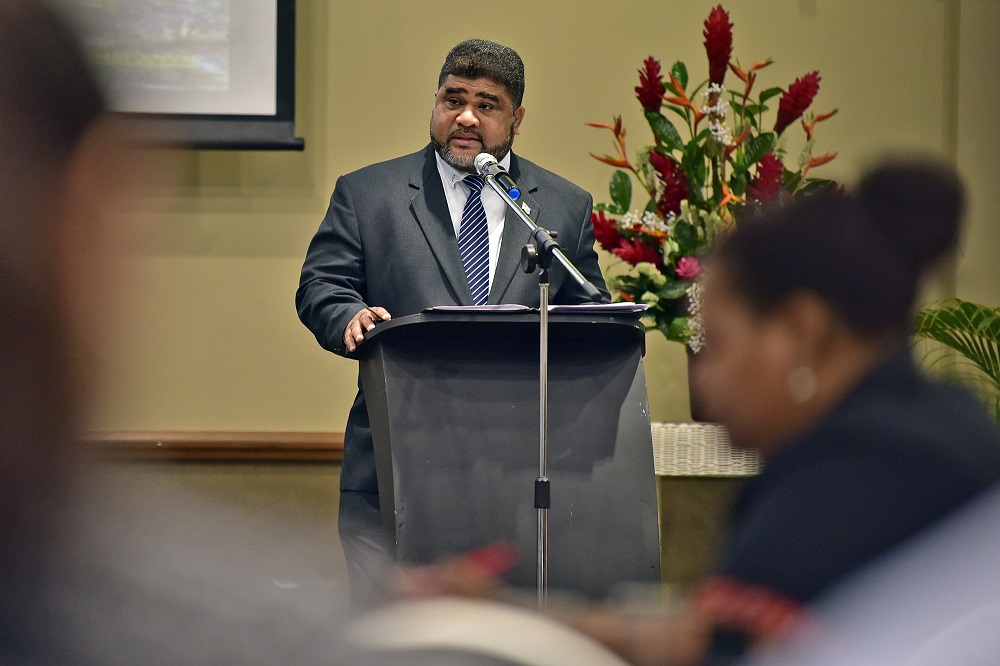Integrated Approaches Needed to Address Agricultural Vulnerability to Climate Change
January 24, 2019

Integrated and shared approaches to agricultural related trade or border practices must be considered to address the impacts of climate change on biosecurity and food security in Pacific Island countries.
This was highlighted by the Permanent Secretary for Agriculture, Mr. David Kolitagane while opening the Technical Cooperation Program (TCP) titled ‘Strengthening Capacities to Address Climate Change Impact on Biosecurity and Food Security in Fiji, Samoa and the Solomon Islands’ earlier this week in Suva.
“This first technical meeting aims to look at capacities to exchange views and compare methodologies for scenario construction to address climate change impacts on biosecurity and food security.
“Pacific Island Countries are highly vulnerable to climate change effects and it is important to consider an integrated and shared approach to our agricultural and related trade or border practices and processes,” said Mr. Kolitagane.
“The impact of climate change in the Pacific is becoming a huge challenge for nearly all agencies in Government,” he added.
With frequent and more intense natural disasters directly and adversely affecting food and income security, he stressed that it brought about more challenges, and added dimensions for the agricultural sector as well as biosecurity and food security for all citizens.
Mr. Kolitagane also acknowledged that the project, which would focus on climate change impacts on biosecurity and food security, was being implemented at a critical time.
“The climate-smart agriculture (CSA) component is designed to help develop the technical capacity, policy and investment conditions to achieve sustainable agricultural development for food security in the context of climate change.”
Mr Kolitagane also stressed that the main objective in the agriculture and food related industry were food security that would be available now and in the future, natural and quality food, nutrition and stability in the sector.
“This is a huge and complex responsibility; it requires forward-looking, big and total solutions. Not partial or slow, not little and certainly not in pieces. We need total and complete solutions to achieve sustainable agricultural development.
-Ends-
